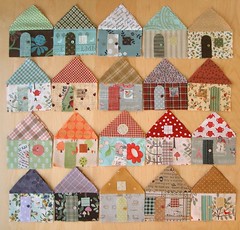Housing Situation
Housing Situation

Photo credit: patchworkpottery
It’s only three posts in, and we have already covered a lot of ground on the subject of houses and housing … you should also be able to see that this blog is unusual; it’s like an iceberg: only 10% can be seen ‘above the ground’ (i.e. in the post, itself) … 90% of the value is ‘hidden’ in the comments below the water line. So, do yourself a favor, go back and read the posts over the last few days and scroll down to the comments …
When you’re done reading, add one of your own!
 Now, our intrepid hounds have tracked Mark down to one of his secret global locations (Mark: will you let us in on the secret … and, send the requisite photos??!), to find that he is the poster-child for the 20% Equity and 25% Income rules … both now, and planned.
Now, our intrepid hounds have tracked Mark down to one of his secret global locations (Mark: will you let us in on the secret … and, send the requisite photos??!), to find that he is the poster-child for the 20% Equity and 25% Income rules … both now, and planned.
What do you think? Does Mark get an elephant stamp?
________________________________
The real estate market has been on the news a lot; be it housing starts, mortgage rates, foreclosure rates, refinancing activity and so forth. While at the macro level it seems like it is affecting everyone, we should zoom in on our own situation to assess where we are at in the current situation. Using some numbers from networthiq.
Basic numbers:
Current home value (according to zillow): $140,000 (Range: $133,000 – $152,000)
Current mortgage: $109,600 ($92,600 first mortgage and $17,000 HELOC).
Current mortgage payment: $515.39 (first mortgage) + $216 (HELOC) + $100 (Taxes) + $146 (HOA dues) = $977.39 (I’m including taxes and HOA dues).
% of after tax income per month: 15.6% (($977.39 / $6241) x 100) using 70% of gross income.
20% Rule
Now let’s look at the details for the 20% rule:
The current equity for the home is $140,000 – $92,600 – $17,000 = $30,400
This approximately (($30,400 / $181,900) x 100) = 16.7%
20% Rule – check.
25% Income Rule
Based on the 25% Income Rule:
I’m currently spending about 15.6% of my net income on mortgage, taxes, and HOA dues.
25% Income Rule – check.
But wait, the 20% Rule and 25% Income Rule is a general rule of thumb. What if the number is significantly below the threshold? Are we not investing enough in our primary residence? Are we missing out on tax breaks on the mortgage interest?
Some of these questions got me thinking and I’m currently in the market to upgrade my current residence and convert my existing home to a rental. It is definitely a great time to buy, if you can afford it. Mortgage rates are at multi-year low and housing prices are declining. It is a buyer’s market.
As for my current residence, I don’t foresee it being a good rental because it does not cash flow with the high HOA dues and the HELOC payments. I dont’ think I will get rid of the HELOC since it is at 2.25%. The main reason for me to keep it as a rental is to ride out of the current market and sell it later when the housing market picks up again.
Let’s run some numbers for the upgrade:
Home value according to zillow: $210,000 ($190,000 – $220,000). I believe I can get a $210,000 market value home at $200,000 given the current market. Not a lot of discount but I’m not looking at foreclosures or HUD homes since I want to live in it for about 3-5 years and upgrade again.
Current home value: $210,000 (purchase value at $200,000)
Current mortgage: $180,000 (after $20,000 down payment)
Current mortgage: $1,216.82 (PITI)
% of after tax income per month: 19.5% (($1,216.82 / $6241) x 100)
Great! This is still within the 25% Income Rule. How about the 20% Rule?
The current equity for the home is $210,000 – $180,000 = $30,000
This approximately (($30,000 / $186,900) x 100) = 16.1% (Assuming equity gain at $10,000 – $5,000 closing cost). The rental is now an income producing asset (if we consider taxes and depreciation).
Nice. Let’s hope I find a good one.
Mark is traveling again – where?







Very well-written and organized, Mark!